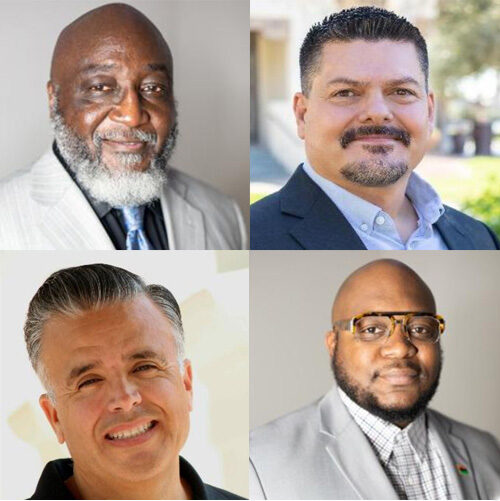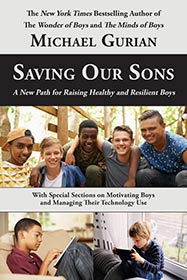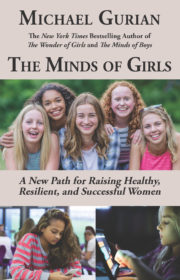Pornography is a natural attractant to most pubescent and adolescent boys. By early adolescence, most boys have begun to masturbate. Because male sexual function is often directly linked, in the brain, to visual stimulation, the male brain creates visual loops between the hypothalamic-pituitary-gonadal axis (the hormonal and reproductive structure of male development) and the visual cortex—the gray matter areas of the male brain that look at not only attractive potential partners in the real world, but also within pornography.
Since the male brain and body are also producing 1) constant testosterone surges, 2) millions of potential fertile sperm in the testicles, and 3) sex-specific dopamine (pleasure/reward) chemistry in the brain, it isn’t surprising that a multi-billion-dollar industry—pornography—has flourished digitally since the invention of the Internet.
Are girls and women as attracted to porn as boys and men? Anecdotally, some are, but statistically, no. Visual porn use tends to follow the male brain and testosterone-based biochemistry around, especially in adolescence and early adulthood. We must discuss it. We must help our boys control its use. When porn comes through our own and our sons’ devices, it is like a potentially dangerous stranger entering our home.
That said, normal curiosity about erotica and porn is not generally dangerous to a boy. Every man you know most likely sought out some sort of porn when he was young and most of us turned out fine. But life has changed from my boyhood, in which physical (and hard to get) magazines gave us our visual porn, to now, in which online life can addict boys to visual porn quickly and relatively easily.
Case Study: Andrew
Andrew is 20. His mother, Sharon, an attorney, and his former middle school principal, Camille, a friend of Sharon’s, asked to see me clinically regarding Andrew, who was having difficulty in college in another state. The two mothers, one the biological and one a mentor to Andrew, told me they knew I couldn’t meet Andrew himself except via Skype but wanted to get my advice because nothing seemed to help him. Sharon had tears in her eyes as we sat together in my office and the story of this young man’s life unfolded.
“First of all,” Sharon says, “he’s a great guy. He’s gentle, he rarely loses his temper, he wants to succeed. He’s stuck, yes, but for instance, he’ll talk with me about anything I ask him. Don’t you think, Camille?”
“He’s very verbal, very open,” Camille agrees. “A great kid.”
“But he’s got so many issues,” Sharon said. “He’s been seeing a psychiatrist on and off for seven years, since middle school. He’s on Vyvanse for ADD/ADHD, and Wellbutrin and Zoloft for depression/anxiety—”
“How long has he been on each of those?” I interrupted to ask.
She consulted the file “He started on Ritalin seven years ago but then Dr. Lindowsky switched him to Vyvanse a year ago.”
“And the others?”
“Wellbutrin for three years and Zoloft for four years.”
“Okay,” I nodded. “And do you think he’s been depressed or anxious all those years?”
Sharon nodded. Camille added, “He’s been depressed on and off, he gets anxious, he was bullied back in middle school for being ‘different.’” She made quote marks in the air. “Meanwhile he’s great with building things on his own, you know, like he built his own computer when he was 11, almost from scratch.”
“He did,” Sharon leaned in with a burst of joy in her wet eyes. “You should have seen it! His father and I were amazed. But he flunked out of math classes, I mean, it’s strange to us that he’s so smart but tests in math so badly.”
“No matter what I or the teachers did,” Camilla agreed, “we couldn’t get him to do his math homework or much other homework, nor could Sharon or Andrew’s father.”
Sharon filled in more details. “We’ve been divorced five years now and Carl is pretty much out of the picture. He has a bunch of dreams he’s pursuing, but I’m the breadwinner and Carl isn’t too active in any kind of fathering sense with Andrew. I’m the one Andrew talks with about sex, guy stuff, at least most of it, which is another reason we need your opinion. Andrew is addicted to video games and he’s addicted to porn.”
“In what way?” I asked.
“In every way.”
“Okay, for instance: how many hours a day is he playing video games or generally using his smartphone, tablet, or computer?” Because many of our young males who play video games, bond with others online, and use internet porn are not so “fixated” that the technology use tragically disrupts the boy’s physical, cognitive, and social development (addiction) I wanted to make sure we all meant the same thing by that word.
“His whole life is online,” she responded immediately. “His psychiatrist lives far away from him now, so she can only prescribe his meds, but she says he is addicted, and the thing that really worries me is that he told me a few weeks ago he can’t get an erection anymore without using porn. That’s bad, right?”
“Yes generally, but are you sure he’s being really accurate with you about his situation?”
Camille defended Sharon. “She’s not making that up. Andrew and Sharon, especially because Carl is so distant, have an amazing relationship. They talk about everything. If Andrew told her that, it’s true.”
“It’s true,” Sharon said. “He told me it’s been happening for about six months now. He’s great at computers, you know, since he was a boy—maybe 9 or 10—and every year he just gets better at everything, like coding, programming, but he’s just getting sucked deeper and deeper into that computer, those games, and that porn. It’s like it happened fast, even though it took a few years.”
Tears dropped down Sharon’s cheeks and Camille reached to hold her hand. We talked more that day and then I Skyped with Andrew the next week.
I spent the next two months helping Andrew and his family through the various aspects of what seemed to be happening within him. As we talked, I also referred him to a neuro-psychiatrist for genetic testing and brain scans.
Fortunately, because Andrew was a “science geek” (his words) he welcomed the testing and scans. His mother, too, had the financial resources to pursue them. But I continued to worry about Andrew. Even when he started seeing the neuro-psychiatrist, his mother, who still lived near me, came in to see me for continued emotional support three more times.
“I know Andrew’s got problems,” she said. “So, if you could just give me the ‘pros’ and ‘cons’ of his situation. What is the best way to help him in the future with electronics? What did I do wrong before? I need takeaways from you—I need to know what the boundaries of helping him can be for me as a mom of a kid who everyone else treats as an adult but I know he’s still a boy.”
“First,” I reassured her, “I know you worked with the information you had. You didn’t know how video games and porn can affect males because the science on these things is only just now beginning to clarify itself. Ten, twenty years ago, none of us knew what we know now.
“Second, you are a good mom and you had good instincts about Andrew—you raised a very nice guy. He talks to you even about his intimate life. This is a gift—it means he is not afraid to reveal himself and get help. Nothing I will say should make you feel that in some way I think you have not been a wonderful mom.
“Third, you’re right about the porn. If an older man can’t get an erection without visual porn there’s often nothing at all abnormal about that, and he’s generally not addicted to it. But if a boy or young man at the peak of his testosterone functioning can’t get an erection without visual porn there’s generally an addiction or other problem.
Andrew eventually did go to an in-patient rehab, and three years later Sharon told me that he had completed a two-year vocational school that specialized in computer coding. When he got out, Sharon told me he was still battling his addictions, though he was improving, she said. He would mature and succeed, she believed, “though most likely not until his thirties or later, I’m afraid,” she said in a combination of sadness and hope that only a parent of a somewhat lost child has felt.
What You Can Do to Protect Your Son
Andrew’s case is, like all cases, multi-faceted. The porn use crept up on him and his family, without them realizing it could become so addictive so quickly. Andrew’s healthy brain development was derailed.
Andrew’s case reveals the cohort of issues that can also accompany excessive porn use. Andrew’s brain functioning was re-wired from a developmental decade of video games, constant visual porn, and brain-changing medications; male educational trauma (the mismatch of his male brain with his classrooms); bullying at school during formative years; divorce trauma soon after that; and gradual decline of adequate paternal nurturance in his adolescent development.
Often, excessive porn use is accompanied by other elements. While Andrew’s is an extreme case, it is one that should remind us: the male brain is more fragile than we generally think. It needs our conscious protection, even when adolescent male bodies are, by necessity, armoring up—the brain is still tender.
Porn, then, can be a neurotoxin, even for boys who do not become sex addicts.
All that is potentially bad news, but the good news is: you can study your son’s porn use and, if needed, institute some of these strategies.
* Don’t overreact to normal visual-sexual curiosity and normal masturbation. If you aren’t sure what “normal” should be for your son, ask the men in your family, or ask a professional who knows your son. There is also a wonderful book on normal sexuality called Slippery When Wet by reproductive physiologist Dr. Joanna Ellington. Dr. Ellington has raised four boys and she has a powerful mom-friendly perspective—both as a scientist and a mother—on what is normal for adolescent boys.
* Keep strict tabs on the websites your son visits, both via his phone and his computer/tablet. If possible, keep parental controls on all visual devices (including television, Netflix, Hulu, etc.) but assume that your son may find a way around those, so keep checking everything to see where he went if you are at all worried about his visual porn use.
*Remember, all devices are primarily yours. They are only secondarily his. You own them because they are in your home. Your job is to protect your son until he is independent of you (i.e. 18 or even older). He has normal physical rights to privacy, of course, but digital life is not included in that “privacy” if you are worried at all that he is over-using porn.
* If you discover that he visited a porn site, check the site out, talk with the men in your family, decide what should happen next. Should Dad or another man talk to your son about this, or, if you’re a single mom without male assets right now, should you talk with him? As always, if you have any questions about what is normal for your son, talk with professionals, like school counselors, who know your son.
* When and if you approach your son about porn websites, avoid shaming him and if consequences are needed, give your son three chances. This will often be better than immediate anger or punitive consequences. Three chances to change his porn behavior helps him to self-regulate so he can develop his own mature response to the porn.
* If your son seems inordinately attracted to porn, especially porn with a certain fetish or involving a certain population, you may not have known it, but he may have been sexually abused and the porn use can be a gift to you—a clue to a greater conversation that needs to happen with this boy to discover and treat the source of his trauma. In these cases, get professional help immediately.
* Assume that no matter what you do to control porn in your home, he’ll find some way, through friends or elsewhere to discover porn. And again, remember that some of this discovery is normal, so make sure to work together in your nuclear and extended family and counseling system, to decide what is right for your son and his friends.
* Just as with video games, ask the trusted men in your family to look at the porn a boy discovers with the boy to teach lessons about objectification of women, healthy sexuality, and love and commitment.
*If your son reveals to you or another that he is generally unable to get an erection without porn use, he may well be a porn addict and may need intervention and addiction rehab.
You may have an 11, 12, or perhaps even 13-year-old who isn’t seeking out or finding visual porn and your journey with porn may not begin with your boy until 15. I hope you won’t live in fear about porn, since most boys will never become porn or sex addicted, but I do hope, too, that you will be vigilant with this as your son enters adolescence–whenever the porn might become an issue.
We are challenged today with either integrating parental and educational vigilance about porn into the raising of our sons, or we risk our sons going in directions they—and we—will ultimately not be proud of, ways we should rightly fear, directions that set boys up to fail or fall behind as men, confused, unable to launch and flourish, and even desperate as men for a kind of attention that is impossible to gain in the real world.










